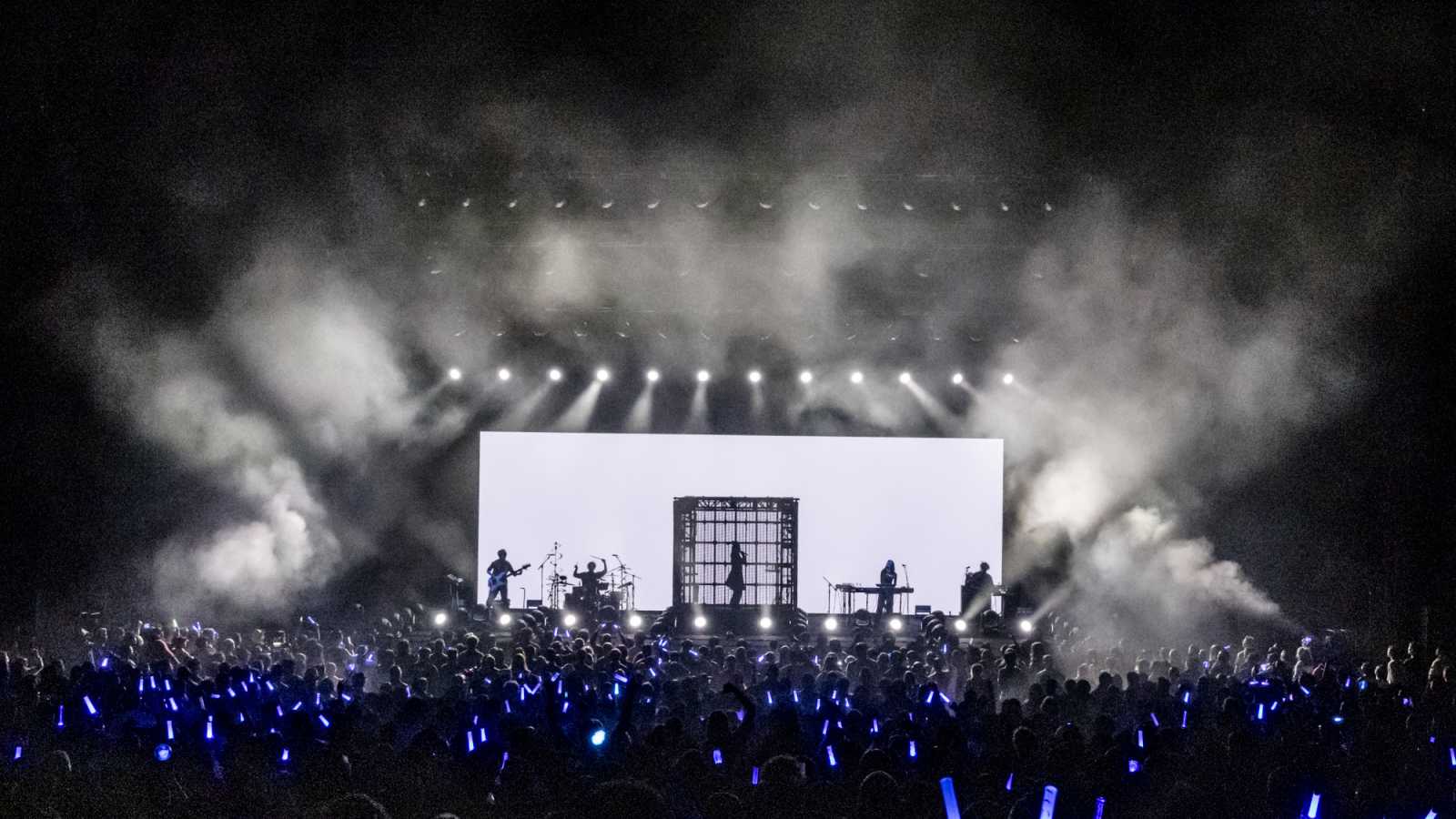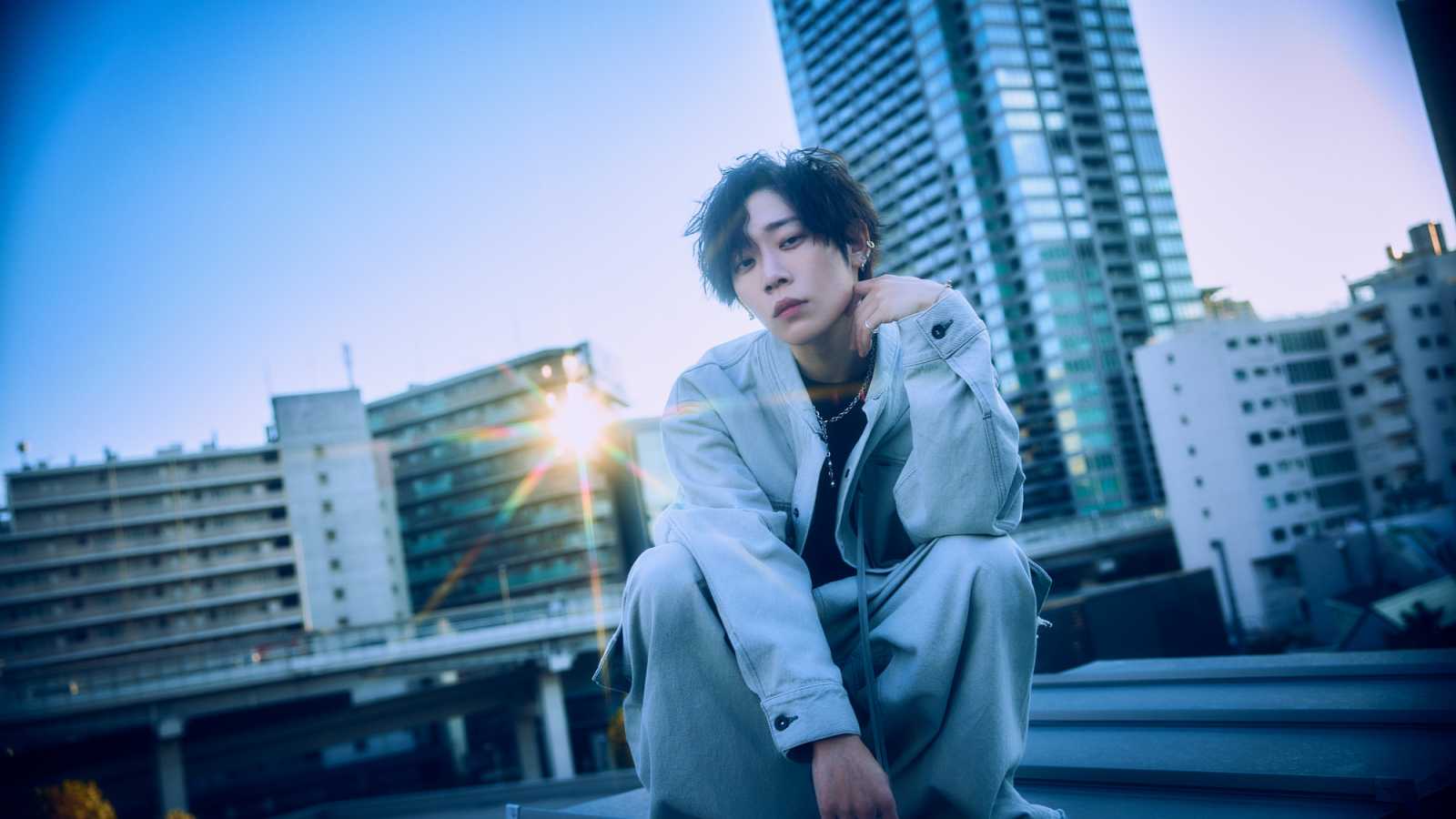Even though
Kalafina only debuted a little over a year ago in January 2008, the group has already released four singles and a full album:
Seventh Heaven. As expected when releases follow so quickly after one another, the album contains various pre-released songs. Amongst the fourteen tracks, there are seven previously released tracks and seven brand new ones.
The album starts with the appropriately titled
Overture, a short piece with a very ethereal feeling to it. It’s slow and dreamy, with breathy, slightly distorted vocals and a harp tinkling gently. With sounds that give the image of the tide washing in, it is a very soothing track. Because the tension does gradually increase, it is an excellent way to start the album. The first actual track is
oblivious, which was released as their first single. After a short intro with operatic vocals, the song builds up and explodes into a fast paced, synthesized song. It’s close to a pop-like brand of techno, a very familiar style for their composer
Yuki Kajiura. The high pitched, operatic vocals of
Wakana, Keiko and
Hikaru flow through the song smoothly, and all these elements together create a very catchy song.
Love come down, the first new song on the album, continues in the same fashion, but it is a little more high-energy and rousing. It certainly will persuade the listener to start dancing! After the two fast-paced tracks based on electronics, it’s time for the gentle side of
Kalafina.
Natsu no ringo is mostly acoustic, featuring a guitar, percussion and a quena, a traditional flute from the Andes. The vocals are flawless once again, sung with grace and precision.
fairytale, also previously released as a single, sustains this gentleness. It’s a very imaginative song, giving the impression of a story told between the three vocalists whose voices once again excel. The calm pace continues with
ARIA, yet this song grows very intense and emotional. It’s easy to close your eyes and let the music evoke beautiful images.
The following song,
Mata kaze ga tsuyokunatta seems to have been placed strategically, seeing as it’s a rather heavy rock song. Though the distorted electric guitar sound includes a cello and operatic vocals at times, it leans towards symphonic metal. While the diversity is great, it shakes the listener awake a bit too crudely, and the vocals are not shown to their full advantage either.
sprinter is a little similar; it's also fast-paced with the backing of a rock band, all distorted guitars and pounding drums, though it is a little calmer and less aggressive than
Mata kaze ga tsuyokunakatta.
With
Kizuato, however, the three vocalists are put in the spotlight again. With its 6/8 rhythm that gives the impression of a waltz, the instruments and vocals playfully entwine with a hint of merriness. The following song,
serenato gives off a completely different vibe. With the tree vocalists chanting and singing in unusual scales, it has an incredibly outlandish and foreign feel. It takes the listener to foreign countries, perhaps to the Middle East with the unique vocals, and the pulsating rhythm also contributes to this feeling. The air of mystery pulls the listener in, enchanting them with the wonderful melodies.
With
Ongaku, the electronics are back again; the upbeat rhythm comes out of the speakers at full force and a high energy. And again, with its pop-like vocals and feel, it’s very easy to get into and really catchy. During the bridge, the operatic vocals soar, once again showcasing the fantastic vocal talents that
Kalafina is known for.
Ashita no keshiki and
Kimi ga hikari ni kaete iku return to the more gentle, balladesque side of the ladies, though they are certainly just intense in feeling, perhaps even more so. For both, the focus is on the vocals, which are alternated between the vocalists or sung together in lovely harmony.
The album ends with the title track,
Seventh Heaven. It is actually a continuation of the first song,
Overture, but this time it’s been turned in a full song, with vocals as well. Still, it is a lovely, soothing piece and closes the album in a perfect way.
It is difficult to find anything negative to critique on
Kalafina’s
Seventh Heaven album; both the composer
Yuki Kajiura and
Kalafina show excellent skill and intriguing composition. There are hardly any dull moments to be found. Everything is pieced together excellently, and you can definitely tell the master mind behind the album is a very experienced and skilled composer - all the songs carry their own stories and beautiful harmonies.
Starting May 12, 2009, the album will be also available for digital purchase on iTunes. In the same month, Kalafina will be attending the US anime convention Anime Boston.


